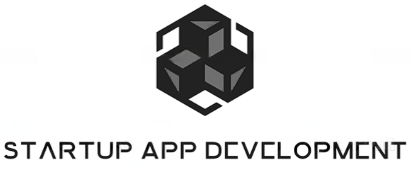In the bustling world of startups, choosing the right app development partner can make or break your success. With so many options out there, it’s important to know what to look for to ensure a smooth journey from concept to launch. In this guide, we’ll break down essential tips to help you find the ideal partner for your startup’s app development needs.
1. Understanding Your Startup’s Needs
Before beginning your search, it’s crucial to understand precisely what your startup needs. Consider the goals of your app, the features you envision, and your target audience. This clarity will guide you in identifying the right partner who aligns with your vision.
Start by creating a detailed project brief that outlines your startup’s mission, objectives, and specific app requirements. This document will not only help you internally but will also serve as a valuable tool when communicating with potential app development partners. Clarity from the outset can prevent misunderstandings and scope changes down the line, ensuring a smoother development process. Understanding the intricacies of your business can streamline the process of finding an app developer for your startup, ultimately saving you time and resources.
2. Evaluating Technical Expertise
Technical prowess is non-negotiable when it comes to app development. Check prospective partners for their expertise in relevant technologies. Review their portfolios and inquire about their familiarity with the specific platforms you want your app to operate on.
Consider visiting tech forums or developer networks to scout for developers’ previous work and reputation. It’s essential to find someone who can not only code but is also up-to-date with the latest industry trends and best practices. This ensures your app is built on a robust foundation and offers a competitive edge in the marketplace. Furthermore, partnerships with skilled developers can introduce you to new technologies, enhancing the quality and functionality of your app.
Your app development partner should possess a deep understanding of the development tools and languages required for your project. Whether it involves iOS, Android, or cross-platform development, ensuring their proficiency in programming languages like Swift, Kotlin, or JavaScript is vital. This technical strength directly correlates with the app’s performance, scalability, and ability to evolve with user demands and technology advancements.
3. Checking for Industry Experience
Experience in your industry can give a partner an edge in understanding your market challenges and opportunities. Look for partners who have successfully developed apps in your industry or for similar business models.
Industry-specific experience can bring invaluable insights during the development phase. For startups, this experience means less time spent on onboarding your partner with industry nuances. Their familiarity with market dynamics can lead to more strategic app features, improved user engagement, and ultimately, greater success. Evaluate their past projects to see how they have tackled similar challenges.
4. Prioritizing Communication and Collaboration
Effective communication is the cornerstone of any successful partnership. Ensure that your prospective partner values collaboration and maintains an open line of communication through regular updates and prompt responses.
A transparent communication strategy helps foster a collaborative environment. Regular video calls, status updates, and feedback sessions can keep both parties aligned with the project’s progress. Moreover, leveraging project management tools like Trello or Asana can enhance collaboration by keeping everyone on track and informed about deadlines, deliverables, and changes. Prioritizing communication not only helps in solving issues swiftly but also builds trust and rapport.
5. Assessing Problem-Solving Skills
App development inevitably faces obstacles. Your partner’s problem-solving abilities will determine how efficiently challenges are addressed. During discussions, ask about their process for troubleshooting and managing unexpected issues.
6. Reviewing Past Client Testimonials
Client testimonials and reviews provide valuable insights into a partner’s reliability and performance. Look for feedback regarding their quality of work, adherence to timelines, and overall client satisfaction.
Reach out directly to their past clients if possible. A direct conversation can offer nuanced details about the developer’s work ethic and problem-solving capabilities that written testimonials might not fully capture. Additionally, online review platforms can further verify the partner’s credibility and professionalism, helping you make an informed decision.
7. Considering Cultural Fit
A partner whose company culture aligns with yours can lead to a more harmonious working relationship. Assess their values and working style to ensure they complement your startup’s ethos and vision.
8. Ensuring Flexibility and Scalability
As your startup grows, so will your app needs. Your partner should be adaptable and ready to scale their solutions as your business evolves. Discuss their approach to adapting to changing requirements and scaling app functionalities.
Question their modularity in app architecture, as modular designs facilitate scaling and feature addition with minimal disruption. Flexibility doesn’t only extend to technical solutions but also to partnerships themselves. Ensure your partner is open to feedback, willing to iterate, and can adapt quickly to shifting project scopes or priorities — a crucial aspect when navigating the dynamic startup environment.
9. Verifying Security Measures
App security is paramount, especially for startups dealing with sensitive data. Ensure your partner implements robust security measures and stays updated with the latest security protocols to protect against potential vulnerabilities.
Discuss encryption standards and data privacy laws with your prospective partner, ensuring compliance with regulations such as the GDPR or CCPA that may apply to your startup. A vigilant focus on security helps in safeguarding your brand’s reputation and users’ trust, thereby forming the backbone of your startup’s digital presence.
10. Understanding Pricing and Delivery Timelines
Finally, consider your budget and expected timelines. Acquire detailed proposals to understand their pricing models and ensure they align with your financial capabilities. Timeliness is equally important, so confirm their ability to meet your delivery expectations.


